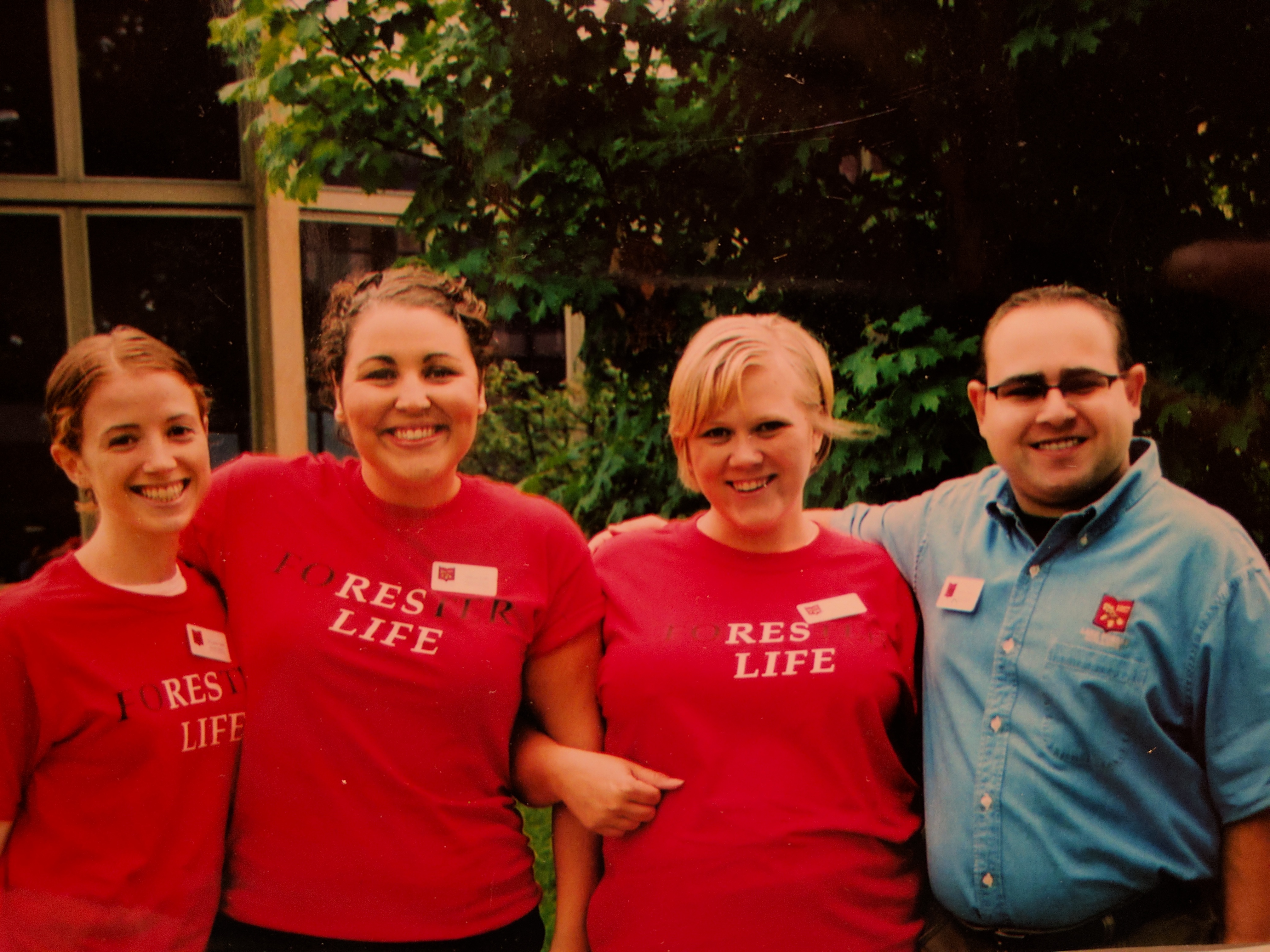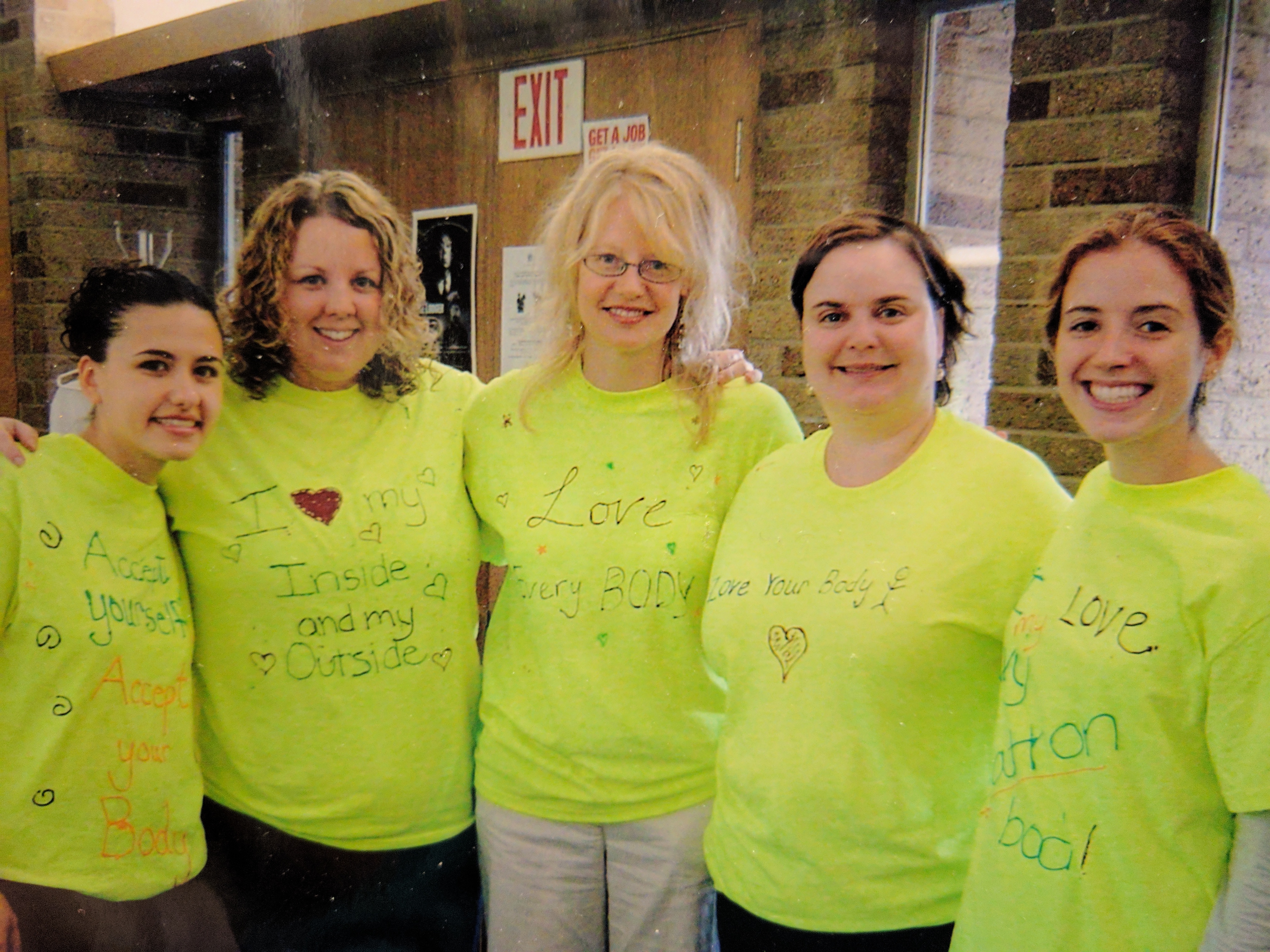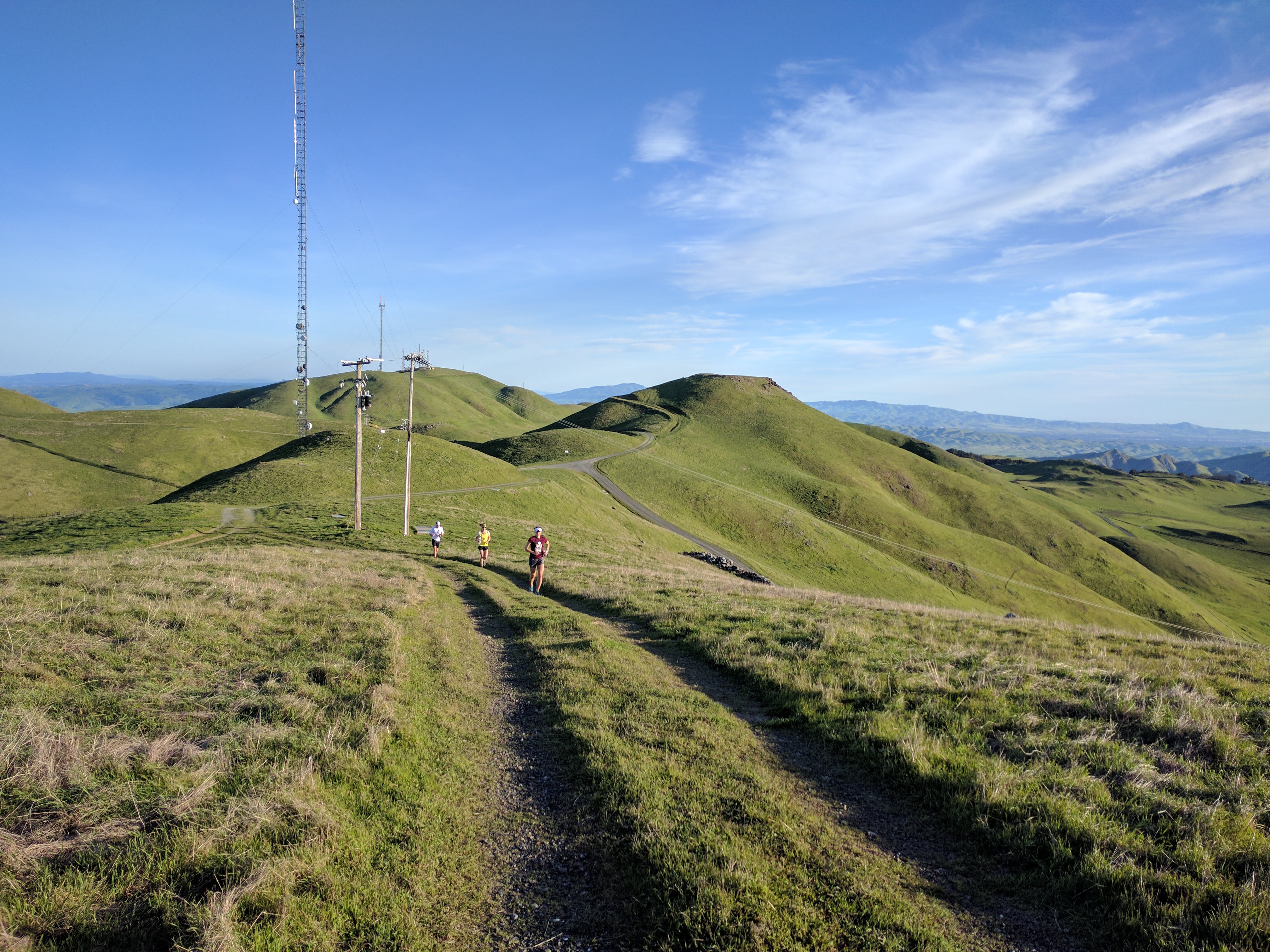2017 Stow Lake Stampede (SF, CA) race report
A couple weekends ago in late April, I revisited the 5k distance for the first time since the Brisbane Reach for a Star 5k. Just like RFAS, the Stow Lake Stampede was a 5k on the springtime PA circuit — basically meaning that it was a team-scored race, so it was rich with Wolfpack camaraderie — and as an added bonus, the race was in SF, in Golden Gate Park. I rarely venture up to SF to visit, let alone to race, and fortunately, after the morning’s race and warm-up/cool-down miles, I’d get to spend some long overdue QT with Erin and Foxy, neither of whom I had seen since Erin’s wedding two+ years ago. A little bit of running with some friend time all but promised that it’d be a good morning.
I decided to forgo a formal LR that week in the interest of trying to be “fresh” for race day, which seemed to be the right move. A hilly but relaxed 8 miler around my ‘hood/through ARP on Saturday was enough to satisfy the pre-race itch without leaving me feeling taxed, and come Sunday, I felt ready to roll. Plus, Saturday was Earth Day; you can’t not run around and appreciate our world on Earth Day.
Pre-race, a handful of teammates and I ran the course as a warm-up and tried to notice what we could about the course: any slight “hills,” where the turns and tangents were, any tricky footing, basically anything that could seem insurmountable when you’re trying to run hard and fast. The SLS course was (IMO) arguably a million times better than RFAS in that a) there were no parking lots; b) SL and GGP in general are both really pretty places to run; and c) there weren’t any crazy turns or out-and-backs. It didn’t seem as pancake-pancake flat as RFAS, but it also seemed flat enough. Combine the course advantages with some beautiful and great-for-racing weather, and the whole team camaraderie environment, and any nerves I had were quickly replaced by loads of buzzing excitement.
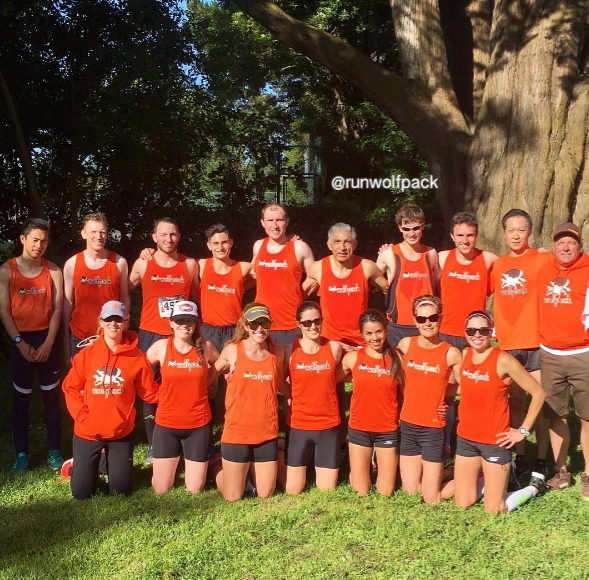
I can’t say a whole lot about the actual race and scenery, not anything like I could for something longer, anyway, but the Impalas, the USATF PA team who organized the race, did a top-notch job with all the race details. Running the course as a warm-up was a smart move for all the obvious reasons, and I think it also helped make the race seem to go by faster because I knew exactly what to expect and where to expect it: where the cones were, where I should be cutting tangents, where the road might have been a little narrow, all those little details that you don’t want to be surprised by when you’re going hot and heavy. The course was simple: we ran up to the lake, we ran around it, and we ran back to the start/finish line. It couldn’t have been more straightforward; I’m pretty sure the mile markers couldn’t have been huger (seriously, they were on big-ass construction signs that you could probably see from space); and like RFAS, it was a fairly no-thrills environment but one that was incredibly conducive to fast times. It was awesome.
Immediately after the start, I noticed Impala friend Robin (fresh off an impressive Boston in unforgiving conditions) spectating, as well as a few of my teammates, all eagerly hooting and hollering. Just like at RFAS, my teammates Claire, Sam, and I ran together for a lot of the race more or less in a pack, and dear lord — I can’t say enough about how driving compelling motivating awesome it is to race in such close proximity with teammates. We came through the first mile within paces of each other — Claire, me, Sam — and basically stayed this way for the duration of the race. Being with my teammates, combined with that whole notion of starting at yes thing that I talked about before, led me to feel like I was running footloose and fancy free, not at all anxious about the all-but-promised redline that I’d surely soon be riding. Being with my team, matching their paces, instead made me feel, or reminded me, that I had every reason to be running how I was, where I was, and that the best thing I could do in that race, in those moments, was to get outside my own head and just fucking run.
Let me tell you: it was liberating.

One of the last things Wolfpack leader, coach extraordinaire, and amazing human being Lisa told us before we began was to relax in the first mile and have fun; in the second mile to hold steady before we made a move; and in the third mile, to PUSH and pass evvvvvvveryone. While I can’t say that I followed her plan as prescribed, I will say that I never felt stronger or more comfortable in a 5k in my life. Claire, Sam, and I were close to each other through the first mile; we got a little spaced out in the second; and by the time we were in the third mile, I saw another (male) teammate ahead of me whose presence helped me close as hard as I could and finish with whatever I had left.
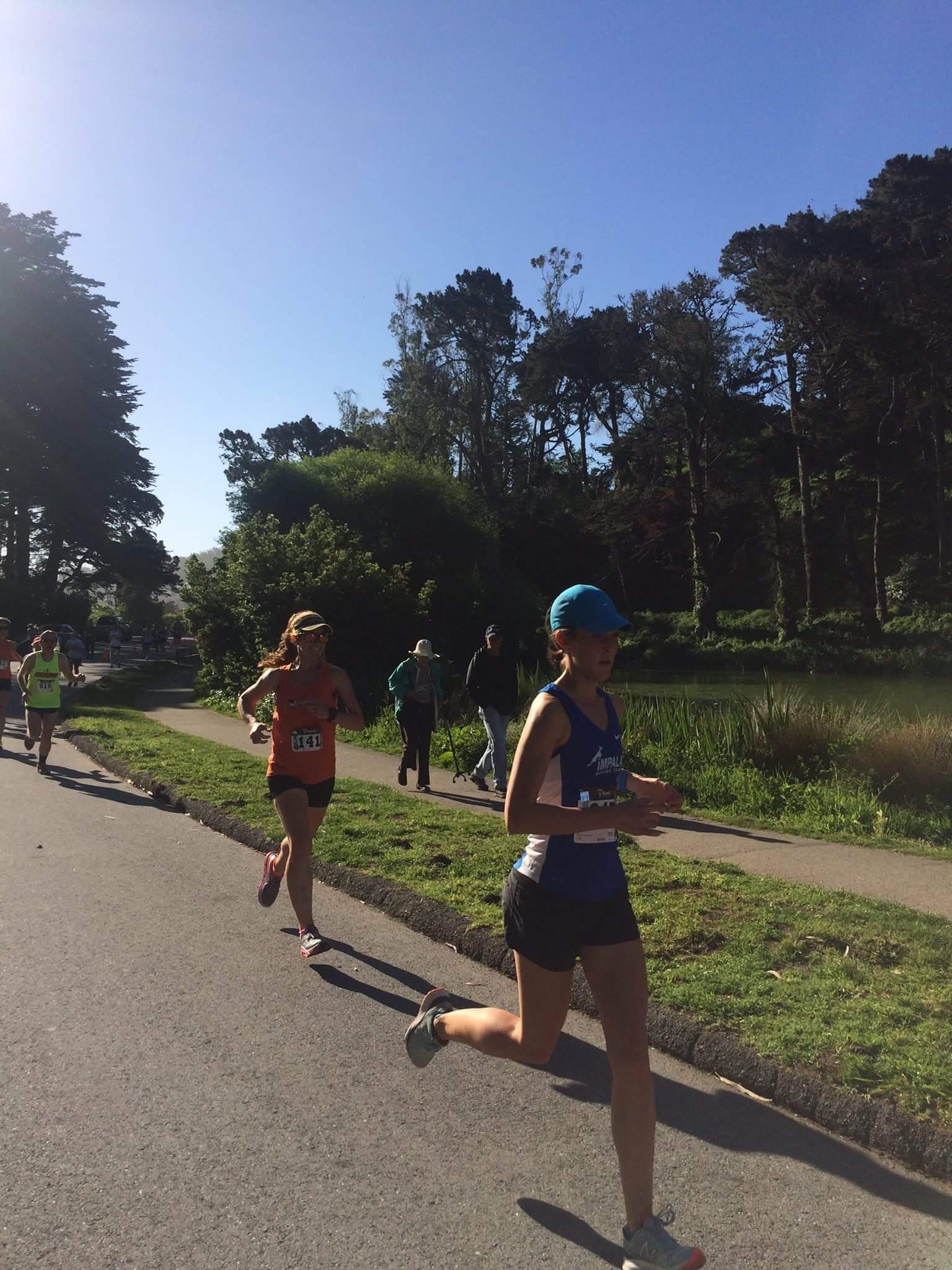
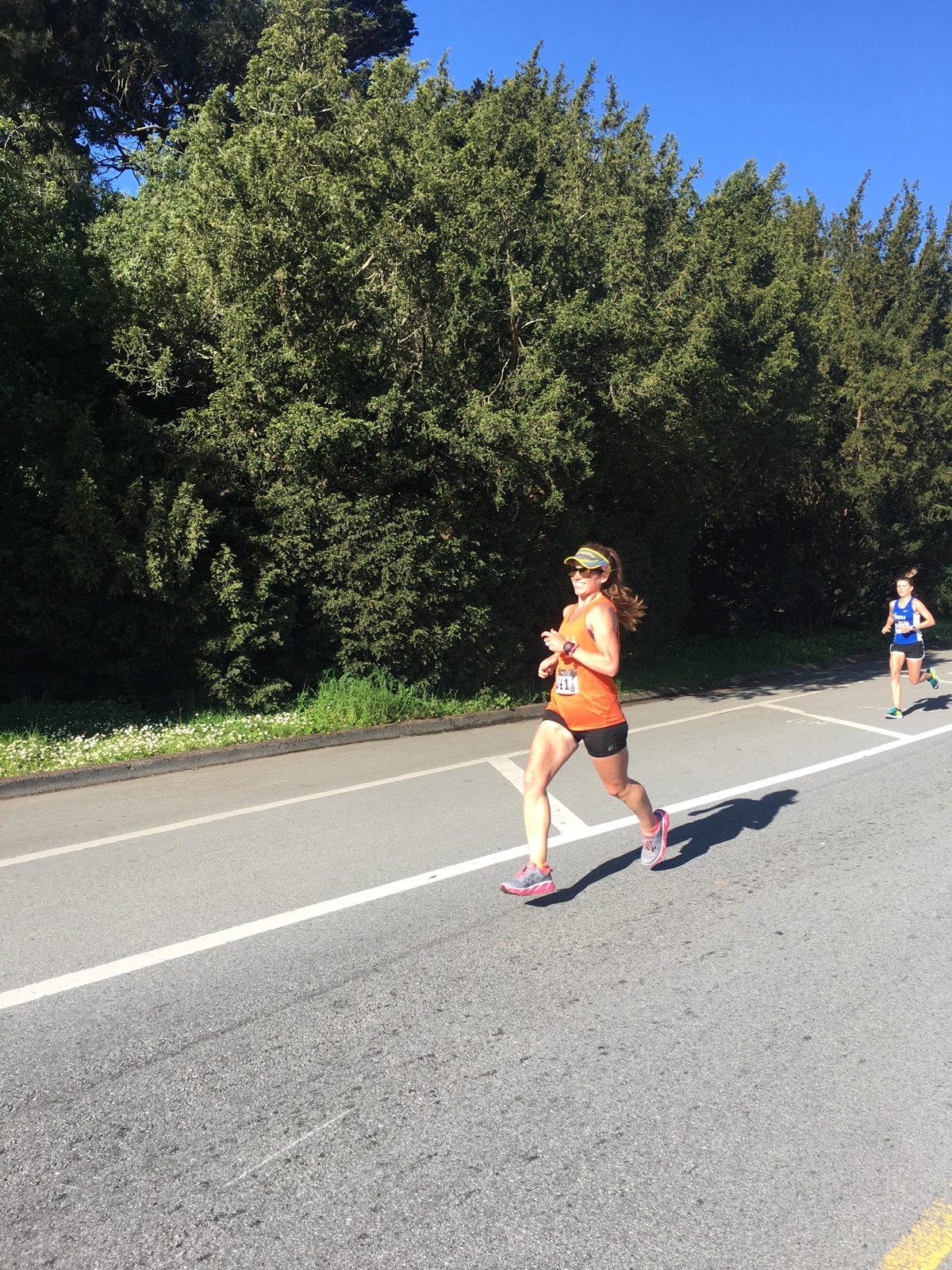
While I wasn’t clock-watching during the race, I’d try to catch my splits when my watch beeped, but I didn’t really have much of an idea about what my total time would be. Imagine my surprise, then, when at the finish line, I learned I posted 19:40 — a 15 second 5k PR from RFAS about a month earlier. (!!!!!!!) I finished the race floored — like beyond belief, did my body actually just do that? floored — but like any endurance athlete, my first thought of “wow that was kinda tough” was quickly replaced by “but I know I can do better.” Gauntlet thrown, self. Apparently, we’ve got some work to do.
Post-race, my teammates Melissa, Gregg, and I ran around GGP for a bit, and then I met up with Erin and Foxy for brunch where I basically left feeling hoarse from running my mouth for an hour+ straight and with a sore face from smiling so much and so hard. Again: it was a good morning.
If you’re local, and especially if you’re on a PA team, I’d definitely encourage you to register for Stow Lake. It’s inexpensive; the course is fast and certified; the post-race finish area had a ton of food (including ice cream, which I somehow missed — blasphemy, I know); and I think I have yet to find someone who doesn’t love running in SF or in GGP. I’m looking forward to this one again next year.
Stow Lake Stampede was my only race in April, a bit of a break after racing nearly every weekend in March, and it was a great way to ease into SF Marathon training. The next time I’ll be circling Stow Lake will be during the back half of the marathon course, so in the next few months, I’ll have to hone my Jedi mind tricks to pull from my strength I felt during the 5k. Can’t wait!
